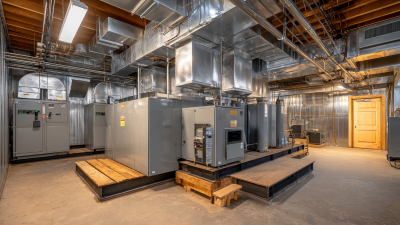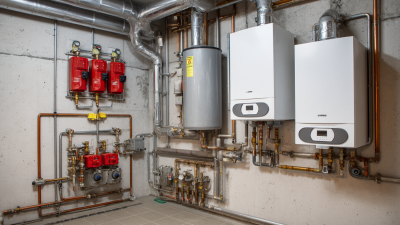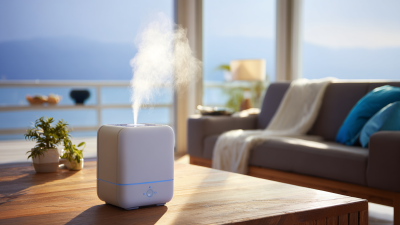Indoor air quality is a growing concern for many households, particularly as studies reveal that around 90% of our time is spent indoors, exposing us to potential pollutants. According to the Environmental Protection Agency (EPA), indoor air can be up to five times more polluted than outdoor air, highlighting the critical need for effective air purification solutions. One of the most efficient ways to tackle humidity and improve air quality is through the use of dehumidifier filters. These filters not only capture dust, mold spores, and allergens but also prevent the growth of harmful bacteria in damp environments.

With advances in technology, the market offers a variety of dehumidifier filters tailored to enhance air quality. In this blog, we’ll explore the 5 best dehumidifier filters available in 2023, guiding you to make informed decisions for a healthier indoor environment.
When it comes to maintaining optimal moisture control in your home, having the right dehumidifier filter is crucial. A high-quality filter not only helps in removing excess moisture but also significantly improves indoor air quality. In 2023, several filters stand out for their efficiency and reliability. Look for filters that feature HEPA technology, as they are designed to capture airborne particles, allergens, and mold spores, providing a cleaner and healthier living environment.
Another important aspect to consider when choosing a dehumidifier filter is its capacity to handle different humidity levels. Filters with activated carbon are highly effective in eliminating odors and volatile organic compounds (VOCs), making them ideal for areas prone to musty smells. Additionally, some filters come with antimicrobial properties, which actively inhibit the growth of bacteria and fungi, further enhancing air quality. Investing in a good dehumidifier filter can lead to significant improvements in your home’s atmosphere, ensuring you and your family breathe easier and live more comfortably.
When selecting a dehumidifier filter, several key features contribute significantly to indoor air quality. First, the effectiveness of a filter is often linked to its MERV (Minimum Efficiency Reporting Value) rating. Opting for filters with a higher MERV rating ensures that they can capture smaller particles, including dust, pollen, and mold spores, which can adversely affect respiratory health. For residential environments, a filter with a MERV rating of 8 to 12 is generally recommended, balancing efficiency and air flow.
Another vital feature is the filter's longevity and ease of maintenance. Filters that are washable or have a long lifespan reduce the frequency and hassle of replacements. Choosing a dehumidifier with a filter indicator can also streamline the maintenance process by alerting users when it's time to clean or replace the filter. Additionally, users should consider compatibility with their specific dehumidifier model to ensure optimal performance. By focusing on these key aspects, homeowners can enhance their indoor air quality and create a healthier living environment.

Indoor air quality (IAQ) is crucial for health and productivity, yet it often receives less attention than outdoor pollution. With the U.S. air filter market projected to grow significantly, filter efficiency plays a vital role in enhancing IAQ. Quality filters, such as HEPA filters, effectively capture harmful particulate matter, allergens, and pollutants, leading to cleaner indoor environments. Investing in high-efficiency filtration systems can yield substantial health benefits, particularly for vulnerable populations like children and the elderly.
Tips for improving indoor air quality include regularly changing your dehumidifier filters. This simple maintenance task can significantly enhance filter performance, helping to reduce humidity levels and prevent mold growth. Additionally, consider using air purifiers equipped with advanced filters that trap a wider range of particles, including smoke and dust.
Another effective strategy is to maintain proper ventilation in your home. Open windows when weather permits to let in fresh air, and ensure that exhaust fans in kitchens and bathrooms are functioning correctly. This can help dilute indoor pollutants and improve overall air quality, ultimately contributing to a healthier living space.
| Filter Type | Efficiency Rating (%) | Particle Size Captured (microns) | Lifespan (months) | Recommended Use |
|---|---|---|---|---|
| HEPA Filter | 99.97 | 0.3 | 12 | Allergens & Dust |
| Activated Carbon Filter | 85 | 5 | 6 | Odor Removal |
| Pre-Filter | 70 | 10 | 3 | Dust & Large Particles |
| UV-C Light Filter | 90 | Unknown | 12 | Bacteria & Viruses |
| Electrostatic Filter | 80 | 0.5 | 6 | Smoke & Allergens |
When it comes to improving indoor air quality, choosing the right dehumidifier filter can make a significant difference. The top 5 dehumidifier filters of 2023 have been carefully selected based on performance data and user reviews, highlighting how effective these filters are at reducing humidity and minimizing contaminants in the air. Customers have praised filters that showcase high absorbency and long-lasting performance, emphasizing their pivotal role in maintaining a comfortable living environment.

One useful tip is to regularly check and replace your dehumidifier filter to ensure optimal performance. A clogged or dirty filter not only hampers the efficiency of your device but can also lead to poor air quality. Most filters have a recommended replacement schedule, so keep an eye on your usage patterns. Additionally, consider filters with activated carbon or HEPA technology, as these are particularly adept at removing odors and allergens, creating a fresher indoor atmosphere.
Another important aspect to consider is the compatibility of filters with your specific dehumidifier model. User reviews often shed light on which filters work best with various units, helping you make an informed decision. Always opt for filters that come highly recommended by users who have experienced similar conditions to yours, as this can greatly enhance your dehumidifier's effectiveness in managing humidity levels and improving air quality.
In the quest for improved indoor air quality, selecting the right dehumidifier filter is crucial. Various filter technologies are available, each with unique strengths and weaknesses. HEPA filters, for example, are renowned for their ability to trap particulate matter, making them ideal for households with allergy sufferers. On the other hand, activated carbon filters excel at absorbing odors and volatile organic compounds, providing a more pleasant living environment. Understanding these differences allows you to choose a filter that aligns with your specific needs.
The challenge arises in an age dominated by algorithm-driven recommendations, leading to the formation of "filter bubbles." These bubbles create a scenario where individuals receive tailored content that reinforces their existing beliefs, potentially forgoing broader perspectives. To combat this phenomenon when choosing dehumidifier filters, it's essential to conduct thorough research and read diverse opinions rather than relying solely on popular recommendations. This will ensure you select a filter that truly enhances your indoor air quality rather than one simply propagated by trending algorithms.
This chart compares the effectiveness rating of various dehumidifier filter technologies on a scale from 1 to 10, highlighting which one might be the most suitable for improving indoor air quality in 2023.





